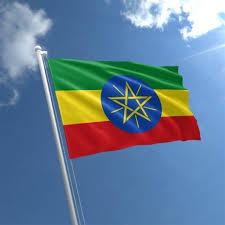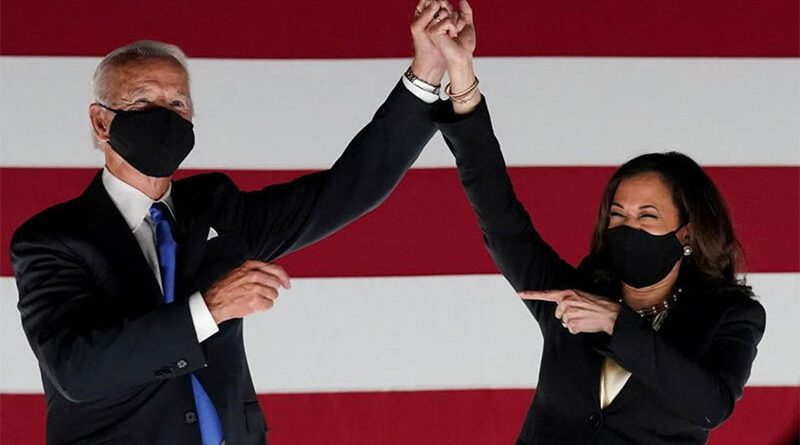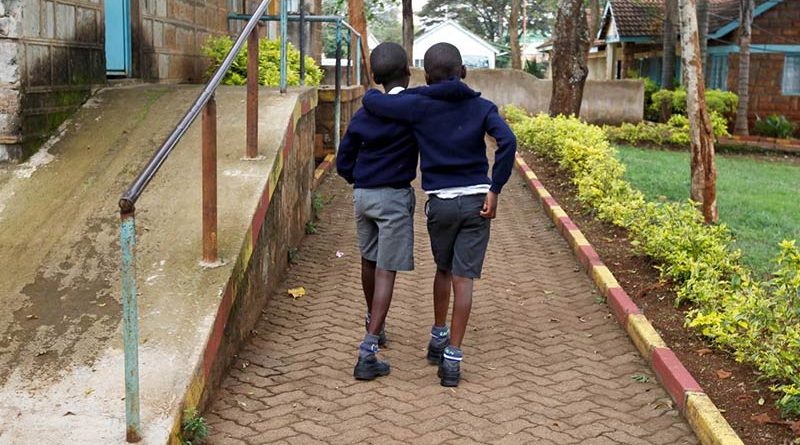Ethiopia's Prime Minister Abiy Ahmed replaced his army chief, the head of intelligence and the foreign minister on Sunday as the conflict with the northern Tigray region escalates.
Abiy’s office said in a statement that Deputy Prime Minister Demeke Mekonnen had been appointed foreign minister while deputy army chief Birhanu Jula was promoted to army chief of staff.
Temesgen Tiruneh, who was president of the Amhara region, was appointed as the new intelligence chief.
The prime minister did not explain the move but on Sunday he accused the Tigray People’s Liberation Front (TPLF), an ethnic faction in the north of the country of preparing for war with the federal government since 2018.
Fears of a civil war
Though he did not provide any evidence.
Tensions rose with the Tigray region on Wednesday after the prime minister accused the TPLF of an attack on federal troops.
The federal army is continuing its offensive on the area and it's feared the fighting could spark a civil war.
Communications systems in the Tigray region have been shut down since Wednesday, making it difficult to confirm reports of violence.
Nine million risk displacement
Tigrayans dominated Ethiopian politics for decades until Abiy was elected and reorganised the ruling coalition into a single party which the TPLF refused to join.
Tensions mounted in September after Tigray held a regional election despite the federal government calling the vote illegal.
Nine million people risk displacement from the escalating conflict, the United Nations said in a report published on Saturday. It also warned that the fighting was blocking food and other aid.
Source: Africa News
A day after being declared Guinea's president for a controversial third term by the constitutional court, incumbent Alpha Conde staged an hour-long walkabout in Conakry on Sunday
But the 82-year-old did so with bodyguards surrounding him after his main opponent Cellou Dalein Diallo called for resistance "by all legal means".
The scenes of jubilation during his hour walk in the capital are a far cry from the deadly clashes seen after he pushed through changes to the constitution that allowed him to run again.
Guinean people who decide
With 59.5 percent of the votes cast, Conde's support surpassed the absolute majority needed to win in the first round, judges found, throwing out challenges to the October 18 ballot from figures that include his main opponent.
"Despite all the threats, despite everything, the people of Guinea mobilized massively, especially women and young people voted massively," Conde said.
"Since 1958, the people have shown that in Guinea it is the Guinean people who decide, and no one else."
Conde also pledged to take a look at outstanding issues between Guinea and France, the ex-colonial power, again without providing details.
After months of violent confrontation and a bitter campaign, he insisted the time had come to "reach out" to opponents and improve the daily lives of the country's inhabitants.
Violence and deadly clashes
Guinea is one of the poorest countries in the world and has seen frequent bouts of political violence.
Its politics are mainly drawn along ethnic lines: the president's base is among the ethnic Malinke community, while Diallo has strong backing among the Fulani people.
The official count from the Ceni national election commission gave Diallo 33.5 per cent.
But the 68-year-old insists that data his activists gathered at polling stations shows he won the vote and is the victim of fraud.
While observers from other African countries have backed the official results, France, the European Union and the United States have cast doubt on them.
Diallo accused judges of "putting themselves at the service of a man and his ambitions, rather than upholding their oath".
There is no way for Conde's opponents to appeal the constitutional court decision, leaving the path clear for the president to begin a new six-year term -- with the option for a second under a new constitution introduced in March.
Clashes between security forces and Diallo supporters after the election again proved deadly, with the opposition saying 46 people were killed in a "wave of terror" while the government put the toll at 21, including some gendarmes.
Diallo's UFDG party has published a list of names of the dead, including photographs of their corpses, matching its higher count, which comes on top of 90 people it says had already been killed since October last year.
Amnesty International has accused Guinean security forces of firing live rounds at protesters in the post-election unrest.
Source: Africa News
DEMOCRAT Joe Biden’s victory in the U.S. presidential election is set to affect Africa’s 1.3 billion people on issues ranging from climate change and immigration to women’s health and human rights, according to academics and analysts.
Under the Trump administration, the United States pulled out of the landmark Paris climate accord, issued travel bans on Muslim-majority nations, and cut aid to charities providing reproductive health services that included abortion advice.
The Thomson Reuters Foundation asked activists, academics and analysts how a Biden administration could impact Africa’s 54 nations.
DAVID KODE, HEAD OF ADVOCACY, CIVICUS
“Civil society groups in Africa have observed how President Trump’s attacks on the media and his violent reprisal of Black Lives Matter protests exhibit similar tendencies of Africa’s worst authoritarian leaders.
A Biden presidency will certainly be a welcome relief for Africa as civil society will be able to count on a Biden administration to denounce African leaders who violate the rights of their people and exert pressure on them to uphold international law.
A practical way will be for the United States to re-join the U.N. Human Rights Council, which civil society holds in high esteem, but authoritarian leaders have increasingly trod on over the last four years.”
NIGEL TRICKS, EAST AFRICA DIRECTOR, NORWEGIAN REFUGEE COUNCIL
“The new U.S. government should prioritise efforts in leading global action to protect millions of people seeking refuge, particularly from those African countries ridden by deadly conflict or the devastation of a changing climate.
As African countries continue to take up more than their fair share of the global duty in welcoming women, children, and men fleeing their homes, the wider international community – led by the United States – has not matched their efforts.
We would like to see the U.S. government taking a lead in ensuring these host countries have the necessary financial support to ease the load of hosting many millions of refugees, as well as the political engagement that can lead to more durable solutions that help people rebuild their lives.”
VICTOR RASUGU, EXECUTIVE DIRECTOR, NETWORK FOR ADOLESCENT AND YOUTH OF AFRICA
“The United States is the single largest family planning donor in the world and thus plays a major role in reproductive health care in Kenya.
Trump’s (so-called) global gag rule was and continues to be an onslaught on the reproductive health and rights of women. The decision deprived individuals, especially women of reproductive age, of the right to body autonomy.
A win for Joe Biden brings back hope and sanity in the management of the healthcare systems … Countries like Kenya will once again be free to offer the reproductive health continuum of care to its populace without being whipped into a certain policy direction that they are not a party to.”
AISSATOU DIOUF, WEST AFRICA COORDINATOR, CLIMATE ACTION NETWORK
“The Trump administration has refused to act to mitigate the effects of climate change and has blocked international climate negotiations for ambitious climate action.
Donald Trump’s decision to withhold $2 billion of the $3 billion pledged by his predecessor has contributed to a huge shortfall at the Green Climate Fund – a contribution that would have enabled countries most affected by climate change, such as African countries, to implement policies to strengthen the resilience of their frontline communities.
A Biden administration would need to take the lead on climate change and make climate change a global priority. We expect the United States would rejoin the Paris Agreement, and step up its efforts and also contribute to the Green Climate Fund.”
ISA SANUSI, SPOKESMAN, AMNESTY INTERNATIONAL
“President Donald Trump’s expansion of the immigrant visa ban that includes Nigeria and other countries with vulnerable populations fleeing persecution was unacceptable.
The ban is discriminatory – and with it the United States is setting a dangerous precedent. It has closed the door for people fleeing persecution and also for those who are seeking new opportunities.
Applying the ban on people from select countries, some of them facing a crisis, is contrary to the values of the United States.
It is our hope that all these discriminatory measures will be removed and more migrant-friendly policies will be introduced.”
Source – Thomson Reuters Foundation.
KENYAN students Purity Nduku and Blessing Cheroo, who go to a boarding school for blind and partially blind children near Nairobi, often walk holding hands.
That way “you are sure you have the support and if something happens, your friend will help,” Nduku says.
However, this simple yet vital tool of holding hands makes it very difficult to comply with the government requirement for people to keep a 1.5 metre distance from others as part of its measures to curb the spread of the coronavirus.
“It is impossible to practice social distance,” said Cheroo at the school in Thika, around 40 km north of the capital.
Kiambu county director of education Victoria Mulili said the visually impaired students were not exempted from the government measures. “It is not easy, especially for children who need to be guided around,” she told Reuters.
In October, Kenya started to partially re-open its education institutions after a seven-month closure. As in many countries around the world, the number of daily infections is again rising rapidly, and health officials say there is a widespread lack of compliance with measures to curb the virus, including a ban on large gatherings.
The country has recorded more than 56,000 cases and more than 200 deaths from COVID-19.




